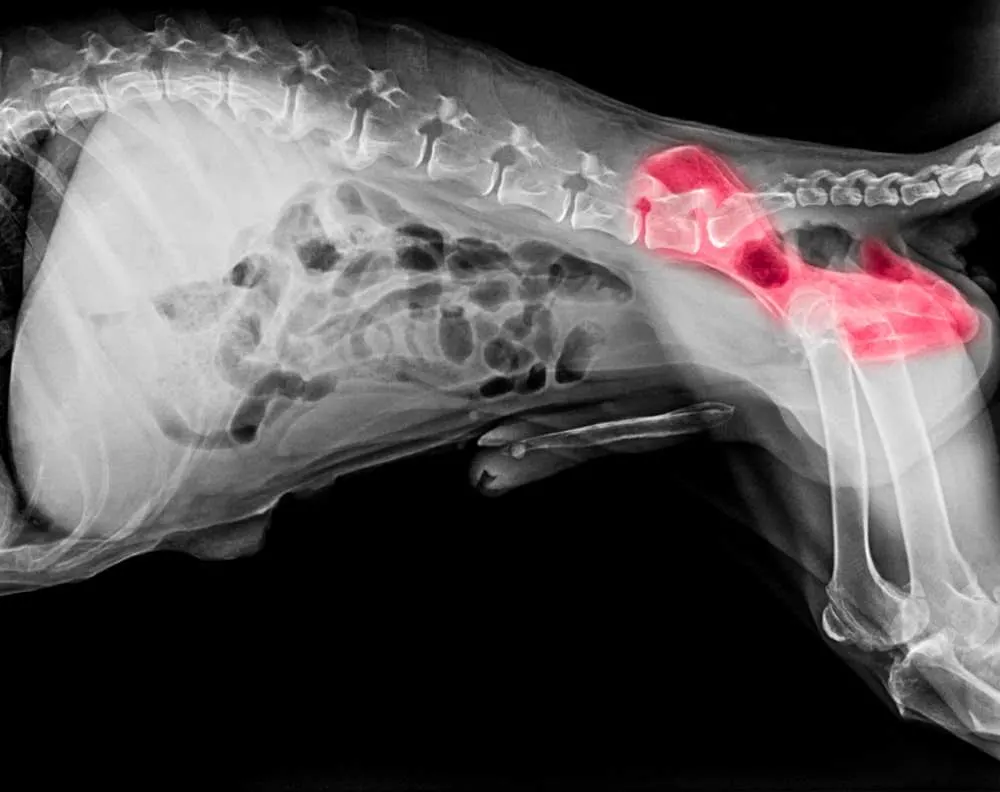For your pet to feel 100% healthy and happy, it is your job to provide him with appropriate care. This means that no need should pass unattended. You need to pay attention to everything – grooming, nutrition, exercise, etc. You need to make room for all his daily needs, which means that you will be spending a lot of time with your corgi.
We continuously see owners complaining about how their dog needs too much attention, but they don’t have that much time. If you have owned a corgi for some time now, you must have had people coming up to you and asking – are corgis hard to maintain?
For all those people out there who are curious about what it takes to take care of a corgi – we are here to help. Reading this article will explain everything there is to know about primary corgi care, how it will affect your daily routine, and some helpful tips for new owners.
Stay tuned for some ground-breaking facts!

The Basics
Sometimes, pet owners can get caught up in their pets’ obligations and requirements, and we can’t blame them. There is no secret that some breeds need more attention than others, especially with health-related matters.
If you want to be a corgi owner, you will need to prepare for some extra-hours with your pet. This is a breed that requires a lot of attention.
The best thing you can do when talking about care for a corgi is to break it down into the essential components.
Let’s do that with the corgi. Corgi care must be focused on:
- Health
- Training and exercise
- Temperament
- Nourishment
We can say that these four aspects have been sorted by importance. Your dog’s health will always come first because if he is not feeling well, you will have trouble with every aspect that follows.
Corgi’s overall appearance heavily depends on the way he is being taken care of. They might need your assistance more than you expected, and you should be prepared for this.
The bottom line is – corgis are not hard to maintain. You can make this work with a good schedule, patience, and commitment. After all, isn’t that what every dog owner should have?

Reasons To Buy A Corgi
Maintaining a corgi is not that big of a deal if you really want him to become a member of your family. If you are having second thoughts, here are a couple of reasons that will make you want this dog even more:
- Corgis have a rich history – If you are interested in history, these dogs have tons of folk tales and interesting facts about how they became so popular.
- Corgis live a long life – The lifespan of a corgi is pretty long, and you can expect him to be around you for 15 years, 16 if you’re lucky.
- Corgis are not hypoallergenic – This is great news for those who are allergic to dog hair and have trouble when they start shedding.
- Corgis are famous for their herding skills – If you are a farmer, a corgi dog is exactly what you need. This little guy will keep your cattle safe.
- Corgis can boost your mental health – Since corgis are always positive and playful, they can contribute to your mental health.

Maintaining Your Corgi’s Health
The first on the list is your corgi’s health manners.
Although corgis are not as healthy as some other breeds, you can still prevent some health conditions from harming your precious pup.
We’re about to go through some of the most common health problems – how to notice and treat them.

Back Problems In Corgis
Small-size dogs like corgis are prone to back injuries because of their bone structure and weight. Corgi’s bodies are tiny, and the pressure can affect his joints and knees. You will need to examine your corgi for Intervertebral Disc Disease (IVDD). This is a very serious health problem that has to do with your corgi’s spine.
- Symptoms: lack of energy, difficulty standing or moving, no appetite, signs of pain
- Treatment: IVDD is diagnosed by X-ray scanning and can be treated via medication (anti-inflammatory pills) or, if the condition of your corgi’s spine is very bad, you might have to send your dog off to surgery.
- Tips: Pay attention to your corgi’s weight and the way he walks.

Obesity In Corgis
Obesity is the second most common health issue with corgi dogs. Some owners really go overboard with treats and meals and don’t realize that they are harming their dog’s health. Obesity can trigger other health issues – difficulty breathing, heart or kidney failure, etc.
- Symptoms: extra pounds, changes in movement, troubled breathing
- Treatment: Obesity is usually treated by frequent exercise and changes in diet.
- Tips: Start measuring the calories in your corgi’s meals, and don’t go overboard with treats.

Hip Dysplasia In Corgis
Hip dysplasia affects your corgi’s elbows and joints. This is more common with older corgi dogs who have lacked regular exercise. You will have to visit your doctor and obtain an MRI to see the stage of the health issue.
- Symptoms: change in motion, decrease in muscle mass, changes in the straightness of the legs
- Treatment: There is no definite cure for hip dysplasia, so your doctor will most probably prescribe you some supplements and anti-inflammatory medication. In severe cases, surgery is a must. This includes hip-replacement surgery.
- Tips: Take your corgi for regular physical examinations to the vet.

Willebrand’s Disease In Corgis
This is caused by excessive bleeding. The blood doesn’t clot well, and your corgi can start bleeding from his nose and ears. According to medical tests, this is a hereditary disease.
- Symptoms: caused or sudden bleeding from your corgi’s nose, ears, etc.
- Treatment: Willebrand’s Disease is often treated by blood transfusions and medication. You should bring your dog to the vet as soon as you notice excessive bleeding.
- Tips: Take your corgi to do a mucosal bleeding test and keep him safe from possible injuries.

Eye Problems In Corgis
Corgis are prone to many different eye conditions like cataracts, retinal dysplasia, progressive retinal atrophy, and persistent pupillary membrane. All these health conditions can result in your corgi damaging or losing his sight completely.
- Symptoms: bumping into things, clumsiness, constant blinking, etc.
- Treatment: Most of these diseases can be treated by medication if diagnosed in time. You should be aware that complete blindness is possible and that severe cases need surgery.
- Tips: Take your corgi to the vet regularly for eye-checkups.

Maintaining Good Behavior and Exercise
Your job as an owner will be ten times easier if your corgi is adequately trained. But, you have to start on time – training is not easy as it seems.
These dogs are filled with energy, but things can get out of control really fast if they are not trained. Your corgi’s training should include:
- Obedience training
- Potty training
- Crate training
- House rules training
Here is what we mean by these points.
| Obedience training | Before training your corgi some fancy tricks, you should teach him to obey his owner. This is the most crucial aspect of training, and it should begin the moment he comes into your home. Corgis are naturally quick learners, so there is no need to use some extreme measures – you just have to let your corgi know that particular behavior is not accepted in your household. |
| Potty training | Potty training should be on the top of your list. This training should be completed while your corgi is still young. It would be best if you taught your corgi that this should not be done in the house and that every time he needs to go out, he should stand in front of the door. With this kind of training, you can use treats to make him learn faster. |
| Crate training | Although corgis are incredibly affectionate with their owners and familiar family members, this might not be the case with strangers or friends. Corgis are territorial, and a stranger coming into your home might pose a problem. This is why you should teach him to go inside the crate without hesitating when you have guests. |
| House Rules training | House Rules training is a broad term, and it varies from home to home. Nevertheless, it would be best if you taught your corgi that he is not meant to stay in certain rooms, not to overthrow delicate objects, and especially not to climb furniture. Be patient because this can take some time. |
Next up is keeping up with your corgi’s exercise plan. Prepare yourself. These dogs love to run around all day – no kidding.
You should set aside at least 1-2 hours a day for exercise. Seriously, you should exercise with your corgi every day if you wish him to be in good health.
The good part is that your corgi is not picky when it comes to exercising and play-time. He will be happy to do anything.
Here are a few ideas for you and your corgi:
- You can take your corgi walking. This is a basic exercise, and it doesn’t require any preparation at all. If you’re on your way to the grocery store, why not take him with you?
- If you are a morning person and enjoy going for a quick jog – count your corgi in. They would love to accompany you on this little morning exercise. The paste is not fast, and they will have no problem keeping up.
- Corgi dogs are always open to new adventures. So, if you have been planning on going hiking for the weekend, you can take your pup with you. Swimming is a good option too.
- Sporting events are always a good idea. They are not just fun ways to pass the time, dog sporting events can contribute to your corgi’s training, and he can learn something new.

Maintaining A Stable Temperament
Keeping your corgi’s temperament under control and preventing him from developing undesirable personality traits and displaying signs of aggression is a work of art for this breed.
Corgis might be small-sized, but they are packed with personality and a strong temperament. If you do not correct this in time, your corgi will go crazy and become unbearable. Let’s be honest – nobody wants to deal with this.
It’s time to get to know your corgi’s temperament and how to deal with it.
First of all, corgis are extremely friendly and affectionate dogs. They love to spend time with their owner, whether it’s just being by their side or engaging in some fun activity together. The problems start when they become too clingy. Yes – once you earn their affection, it’s hard for them to stay away.
It’s essential that you spend time with them, but make sure you don’t spoil them because this can cause another personality trait – “separation anxiety“. This happens when you leave your corgi home alone for more than 6-8 hours after spending a lot of time together.
Separation anxiety is very dangerous because it affects their entire organism. Your corgi can become depressive and refuse to eat, drink or go outside.
Another thing you should know about these small dogs is that their size doesn’t stop them from showing their teeth. That’s right – these little guys can indeed become aggressive if you mess with them. However, human interaction isn’t the only source. Corgi aggression can be caused by food, toys, or even territory,
Aggressive corgis are very dangerous, especially when friends and kids are around. Also, it is proven that female corgis are actually more aggressive than males. The good news is that you can manage this by behavior modification, that is, with the help of a professional.
Corgis are very intelligent dogs, and you should challenge their intelligence from time to time. Keep their mental health in good shape by teaching them some new tricks occasionally.

Maintaining A Healthy Diet
Nourishment is very important to corgis. These dogs are food lovers, and they would munch on everything they lay their eyes on. But, it’s up to you as their owner to make sure that their food choice is healthy and safe.
As your corgi grows up, the amount and number of meals changes. You don’t feed your 2-month corgi the same amount of food you give to a 10-month corgi.
Here is how many meals per day should your corgi get:
| 2 – 4 months | 4 meals |
| 5 – 8 months | 2 -3 meals |
| 9 – 12 months | 2 meals |
Just because the quantity of meals decreases, it doesn’t mean that the composition should too.
As your corgi gets older, you should include more nutrients in their meals. This means that the portions should be bigger and richer in vitamins, proteins, fibers, etc.
The decrease in number also prevents your corgi from becoming obese.
The range of food you can feed your corgi is vast, and here are some examples:
- Dry kibble: Dry kibble is the most common option many owners start with. It is affordable, and your corgi seems to love it. You can also carry it with you and feed it to your corgi while you’re in the park.
- Raw food: Raw food has proven to be very beneficial as far as corgi’s health is concerned. The nutrients in raw food improve your corgi’s bones and coat. This is an excellent source of energy for them as well.
- Homemade food: For those who have some extra time on their hands, homemade dog recipes are a health bomb. This is the healthiest choice there is, and you get to make it yourself. Today, there are tons of recipes you can find online.
Learn More: Are Corgis Expensive To Maintain?

Conclusion
You have been wanting to buy a corgi but fear that it would be too much work. Some dog owners might say that some breeds are extremely hard to maintain, and they are right, but only because they haven’t developed a clear schedule.
Corgis are a great choice. They can live a long life, positively affect your mental health, have a rich history, and even help the farm.
Corgi dogs are not hard to maintain, and you just have to get familiar with this breed’s basics. This will make it ten times easier to make a balance between your and your corgi’s obligations. The key to corgi maintenance is health, training, temperament, and nourishment.
First, you must check the health of your corgi. This breed is more prone to health issues than other breeds, so frequent visits to the vet are a must. During his lifetime, your corgi will face problems with joints, back, and eyesight.
Training your corgi is a serious job, and you should start it while he is still a puppy. As they grow up, these dogs can spiral out of control, and it’s your responsibility to ground that.
Corgis might be small dogs, but their personalities are huge. In order to understand this breed, you must learn how to deal with their temper. Corgis can be very friendly and affectionate, but this can quickly turn into aggression if something makes them mad.
Keep your corgi healthy by keeping him on a healthy and stable diet. You should pay attention to the number of meals per day, his weight and the quality of dog food you buy.

